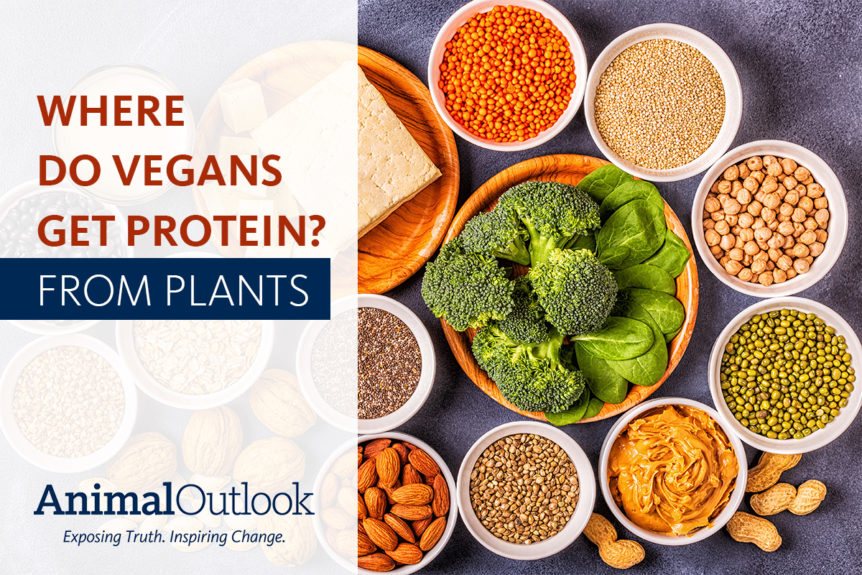As the demand for vegan food continues to grow, you may be wondering, what about protein?
It turns out that vegans – just like animals – get protein directly from plants.
Proteins consist of twenty different amino acids, eleven of which can be naturally synthesized by our bodies. The remaining nine must come from our diets. These nine amino acids, called essential amino acids, are originally synthesized by plants. The reason they’re found in meat and dairy products is because animals have consumed plants and thus have ingested them from their original source. So essentially, it has always been plants that provide us with the building blocks of protein that our bodies require, even if obtained through a secondary source.
Is there a difference in quality between proteins ingested from plants and proteins ingested from animal meat? No. In fact, plant-based proteins can be even more beneficial.
Studies show that consuming animal-derived proteins, often laden with hormones and pesticides and high in saturated fat, is linked with higher risks of cancer, diabetes and heart disease, among other chronic illnesses. High quality proteins can be found in many plant-based foods such as whole grains, beans, nuts, lentils, quinoa and vegetables – and without the additional health risks. Consuming a plant-based diet not only reduces the risk of developing diet-related diseases, but improves and helps to protect overall health.
It should also be noted that it is extremely rare to be deficient in protein if you consume enough calories. A daily protein intake of as little as 10% of your total calories is sufficient for adults. Most people who suffer from such deficiencies live in harsh conditions of starvation and malnourishment. Cases of hypoproteinemia, or protein deficiency, are extremely rare in developed countries. Because protein is abundant in the plant kingdom, anyone who consumes enough daily calories will have little issue with consuming enough protein.
So, if you’re worried about protein, fear not. It’s easy to meet all your dietary needs from plant-based sources – and it’s actually beneficial to do so. Next time you reach for those eggs or chicken breasts, consider opting for protein from its original nutritional source: plants.
Looking for recipes, tips and resources to help you on your plant-based journey? Check out TryVeg and our Facebook support group for VegWeek.


Comments 2
This not only makes so much sense but is the absolute truth. It’s too bad it will be met with complete skepticism. The opening to a closed mind is a closed ear.
You are absolutely right! I have been eating plant based protein and no meat at all for almost 40 years. Wish I had been smarter when I was younger! I am now in my senior years, but when I have my annual physical, all of my blood work comes back perfect! My physician is amazed and attributes it to my diet. I enjoy my food and feel good about not putting any cruelty on my plate. People tell me that I do not look my age, which always makes me feel good.